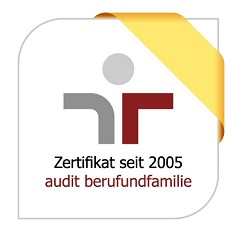PhD Student in Deep Learning for Rare Variant Genetics
Reference number: 2025-0147
- Heidelberg
- Full-time
- Computational Genomics and Systems Genetics

“Research for a life without cancer" is our mission at the German Cancer Research Center. We investigate how cancer develops, identify cancer risk factors and look for new cancer prevention strategies. We develop new methods with which tumors can be diagnosed more precisely and cancer patients can be treated more successfully. Every contribution counts – whether in research, administration or infrastructure. This is what makes our daily work so meaningful and exciting.
The Division of Computational Genomics and Systems Genetics is seeking from October 2025 a
You will be affiliated with the laboratory of Dr. Clarke, which is part of the Division of Computational Genomics and Systems Genetics at DKFZ (https://steglelab.org). The project is executed in collaboration with the main partner of the TARGET-AI project at Helmholtz Munich, as well as supporting groups at the University of California, Berkeley and the German Human Genome-Phenome Archive. The position will also be connected to a vibrant local ecosystem for data science and machine learning.
Your Tasks
The research group of Dr. Brian Clarke is looking for a highly motivated doctoral student to join an ambitious project aimed at building machine and deep learning models to study the genetics of human disease. Funded as part of the Helmholtz AI program, the project TARGET-AI will bring together expertise from multiple research groups to advance the state-of-the-art in combining the most advanced techniques from deep learning/AI with rigorous statistical analyses, an area in which our group has a track record of success (see recent publications below).
The TARGET-AI project seeks to apply leading-edge techniques from deep learning and Bayesian modeling to gain insights into the genetic underpinnings of disease and improve genetic risk prediction. We seek to build on previous expertise and methods devised by our teams (see below), including incorporating architectures and principles from Bayesian neural networks and biological sequence models, including large DNA and protein language models. The project also aims to develop a prototype federated learning framework to enable meta-analysis of multiple large biobank datasets, all of this with the aim of increasing our sensitivity to unravel the complex genetic causes of disease and, in so doing, identify new therapeutic targets.
Recent relevant publications:
Clarke, B., Holtkamp, E. et al. Integration of variant annotations using deep set networks boosts rare variant association testing. Nature Genetics 56, 2271–2280 (2024). https://doi.org/10.1038/s41588-024-01919-z
Nappi, A. et al. Bayesian Aggregation of Multiple Annotations Enhances Rare Variant Association Testing. bioRxiv (2025). https://doi.org/10.1101/2025.03.02.641062
Your Profile
The successful applicant should hold a master's degree or equivalent qualification in computer science, statistics, mathematics, physics, and/or engineering, or a degree in biological science with demonstrated experience in quantitative analysis.
We are looking for a range of talents and expertise, including in machine learning, mathematics, or statistics. Experience with one of the focus areas of the project, including deep learning, Bayesian modeling, and federated learning, is welcome.
Effective oral and written communication skills in English are required .
Our group values creativity, a rigorous scientific mindset, kindness, and positive team spirit. We encourage candidates from diverse professional and personal backgrounds to apply.
We Offer
Excellent framework conditions: state-of-the-art equipment and opportunities for international networking at the highest level
Access to international research networks
Doctoral salary with the usual social benefits
30 days of vacation per year
Flexible working hours
Possibility of part-time work
Family-friendly working environment
Sustainable travel to work: subsidized Germany job ticket
Unleash your full potential: targeted training and mentoring through the DKFZ International PhD Program and DKFZ Career Service
Our Corporate Health Management Program offers a holistic approach to your well-being
Are you interested?
Then become part of the DKFZ and join us in contributing to a life without cancer!
Dr. Brian Clarke
Phone: +49 (0)6221/42-4725
Applications by e-mail cannot be accepted.
We are convinced that an innovative research and working environment thrives on the diversity of its employees. Therefore, we welcome applications from talented people, regardless of gender, cultural background, nationality, ethnicity, sexual identity, physical ability, religion and age. People with severe disabilities are given preference if they have the same aptitude.

